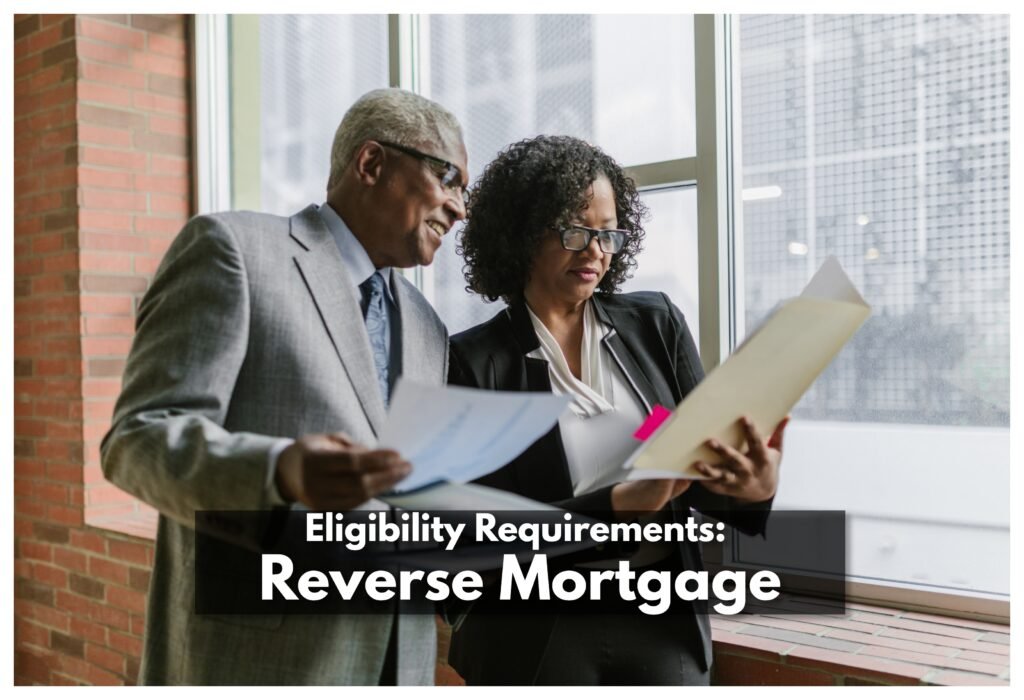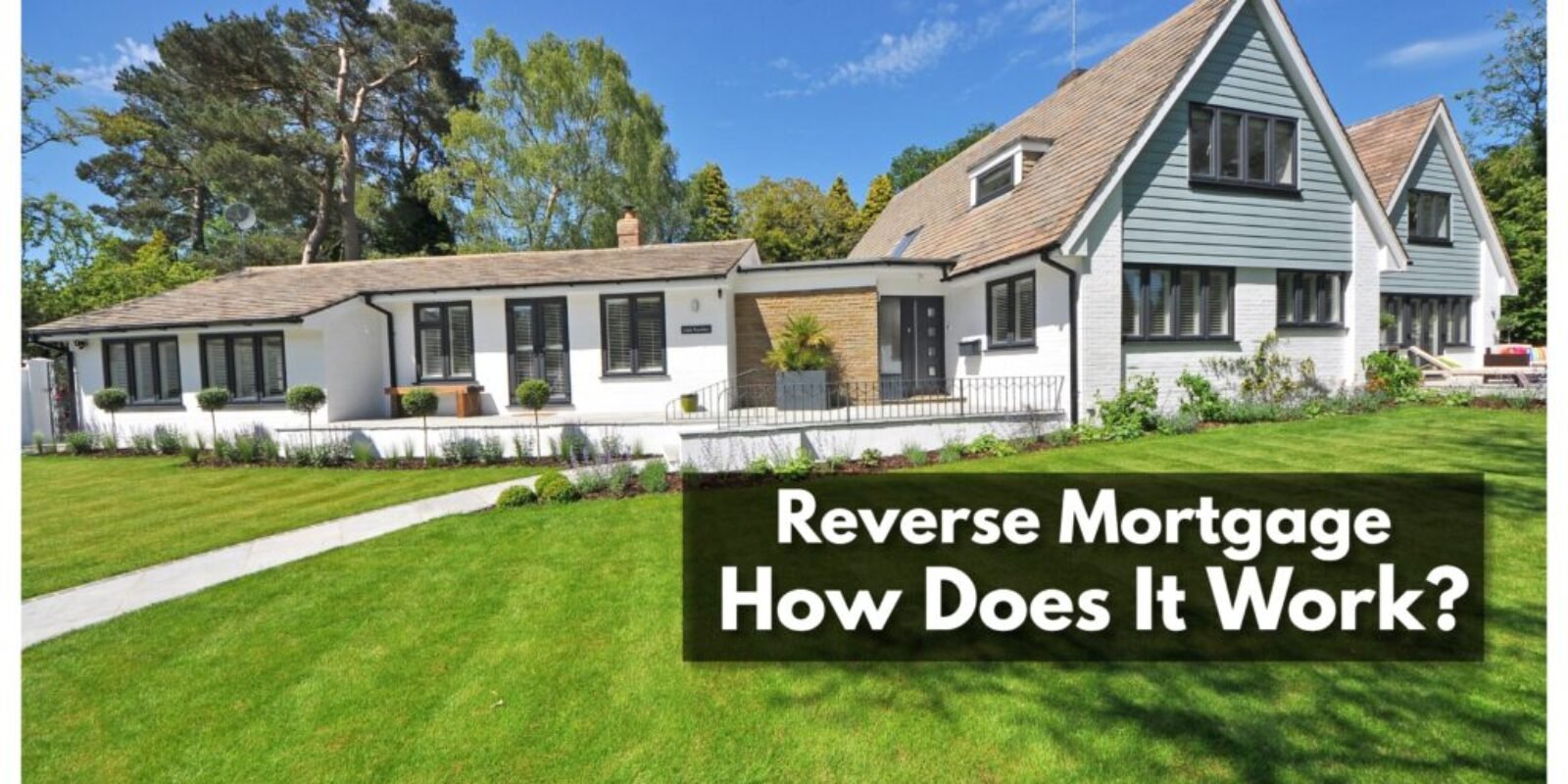Retirement can be a financial juggle, especially ensuring you’ve got enough cash to cover your expenses. Relying solely on Social Security might leave you shortchanged due to its modest payouts.
Retirement requires careful planning, and financial stability is key. Making sure that you have the financial stability to retire comfortably is important for many retirees. One of the strategies to help guarantee financial security in retirement is a reverse mortgage.
Unlocking home equity while continuing to reside in your home, reverse mortgages offer a fantastic solution for retirees who may not qualify for conventional mortgages.
Discover the multitude of perks it offers retirees: boosting income, tapping into home equity, all while cherishing the comfort of their long-time abode. It’s the ultimate choice to supplement their retirement income and secure financial peace of mind.
What is a Reverse Mortgage?
In this blog post, we’ll discuss how reverse mortgages work and make sure that you have the knowledge you need to make the best decision for your retirement. Understanding exactly how reverse mortgages work.
For retirees looking to make the best decision possible, we’ll provide useful advice and the advantages and disadvantages of taking out this type of loan – all to help you out! Finally, we’ll give you the information and resources you need to make the best decision for your retirement.
Prefer to listen rather than read?
A reverse mortgage is a type of home loan specifically designed for homeowners aged 62 and older. Unlock your home equity without selling or managing monthly payments! This loan gets repaid when the borrower passes away, sells the home, or moves away permanently.
Regulated by FHA
The homeowner can receive a lump sum, a regular income, or a line of credit in exchange for ownership of their home. Reverse mortgages are regulated by the Federal Housing Administration and have specific criteria that must be met to qualify.

Can Help Cover Living Expenses
Receiving funds from a reverse mortgage can be a great way for seniors to supplement their retirement income and help cover living expenses. These funds can be used for a variety of things that can improve one’s quality of life and give them greater financial freedom. These funds can be used to cover medical expenses, including prescription medications and doctor visits.
Helpful for Those Without Health Insurance
This can be especially helpful for those without health insurance. The funds can also be used to make home improvements that can increase the value of the house, as well as increase its safety and accessibility. Additionally, these funds can help cover the costs of travel, entertainment, and other activities that can help seniors enjoy their golden years.
Reverse mortgages have become an increasingly popular option for retirees, as they provide a way to access the equity built up in their homes without having to move. This type of loan requires careful consideration of the details, however, to ensure that it is the right option for the individual. It’s important to understand how reverse mortgages work before making any decisions.
Eligibility Requirements
Reverse mortgages are designed to provide older homeowners with a way to access the equity they have built up in their homes over time. However, not all homeowners are eligible for a reverse mortgage. The eligibility requirements for a reverse mortgage include:
Age
To be eligible for a reverse mortgage, you must be 62 years of age or older. While it’s not necessary, most lenders and counsellors encourage having two borrowers, with one being a spouse, to maximize the benefits. If you choose to add a joint borrower, they must also meet the age requirement of 62 or older.
The benefit of having two borrowers is that if one passes away, the other can remain in the home, as long as they can keep up with taxes, insurance, and any repairs needed. If you’re a homeowner and meet the requirements, a reverse mortgage could be the perfect solution for you!
Homeownership
You must also own your home outright or have a low enough mortgage balance that it can be paid off when the loan is finalized. This means that all or most of your home must be free and clear, and you must have sufficient equity in it.
When considering a reverse mortgage, it’s important to know that the amount of equity required to secure a loan will vary across lenders. Generally, lenders require at least 50% equity in the home to qualify for a reverse mortgage. This means that if your home is worth $200,000, you must have at least $100,000 of equity in the home to qualify.
Of course, the amount of equity you have in your home may vary, and this can result in different lenders offering different percentages of equity. If you have a lower percentage of equity in your home, you may need to shop around to find a lender that’s willing to offer a reverse mortgage with lower equity requirements.

Mandatory Counselling Session by HUD
Also, to become eligible, all prospective borrowers must participate in a counselling session that has been approved by the United States Department of Housing and Urban Development (HUD). The purpose of the counselling session is to make sure that borrowers understand the terms of the reverse mortgage, the costs associated with it, and the obligations that come with taking out a reverse mortgage.
HUD-approved counselling sessions are also designed to help borrowers determine whether a reverse mortgage is the best option for their particular situation. The counselling session is mandatory and must be completed before applying for a reverse mortgage.
The Benefit of a Reverse Mortgage
Retirees can take advantage of reverse mortgages to improve their retirement planning. These specialized loans offer numerous advantages that can make life more enjoyable during retirement.
Financial Security
A Reverse mortgage can offer financial security to retirees, which can be a huge relief. It provides a steady flow of income to cover expenses and alleviate financial worries.
This income is not considered taxable, so there’s no need to worry about taxes when receiving the money. It is a great way to make sure that retirees can maintain their lifestyle without fear of running out of money.
By having a steady income stream, retirees can focus on enjoying their retirement instead of worrying about finances. It also allows retirees to age in place and stay in the home of their dreams.
This can be a great way for retirees to remain independent and enjoy a comfortable lifestyle. They can rest assured knowing that their income stream is secure and will provide for their needs.

As part of the process of understanding how a reverse mortgage works, it’s important to understand the costs associated with the loan. Before you decide to take out a reverse mortgage, you’ll want to carefully consider the upfront and ongoing costs associated with the loan.
This includes loan origination fees, appraisal fees, title fees, closing costs, and more. It’s also important to consider the interest rate of the loan, as this will affect your monthly repayment and total interest payments.
You’ll want to understand any other restrictions and fees associated with the loan. By carefully considering these costs, you’ll be able to make an informed decision about whether a reverse mortgage is the best option for you.
Types of Reverse Mortgages
It is crucial for individuals exploring the potential of a reverse mortgage to be aware of the various available options. There are five primary types of reverse mortgages:
Single-Purpose Reverse Mortgages
- These are an economical option for many homeowners, particularly single-purpose reverse mortgages which are backed by state and local government bodies and nonprofits.
- These mortgages are designed to be used for specific purposes, such as repairs and taxes, and may be an accessible option for individuals who have a lower income.
- Eligibility requirements may vary depending on the specific program.
- Single-purpose reverse mortgages may have lower fees and interest rates when compared to a traditional reverse mortgage, making them an appealing option for many people.
Proprietary Reverse Mortgages
- A type of loan offered by private lenders.
- This typically carries a higher interest rate than traditional mortgages.
- If you already own a home that’s appraised at a high value and has a small mortgage, you may be eligible to receive a higher loan amount.
- However, it’s important to consider that this type of loan will increase your debt and use up your equity.
- Taking out a proprietary reverse mortgage is an expensive way to borrow money, and could potentially limit your financial options in the future.
Home Equity Conversion Mortgages (HECMs)
- HECMs are the most common type of reverse mortgage and are backed by the U.S. Department of Housing and Urban Development.
Equity Loan Reverse Mortgages
- Are similar to HECMs in that they are backed by the FHA, but they have higher loan limits and are available to those with higher incomes.
Reverse Mortgages for Purchase
- This type of loan is used to purchase a new home and allows borrowers to receive payments from the lender to purchase their new home.
- The lender will provide the borrower with a lump sum for the purchase of their home, as well as monthly payments that can be used for the borrower’s living costs.
Each of these works in different ways to provide homeowners with access to their home equity. It’s important to understand the differences between these types of reverse mortgages before making any decisions.
The Process of Application
The process of securing a reverse mortgage is relatively straightforward – once you have taken the time to do your research and understand the options available to you.
Complete Several Forms
To begin the process, you’ll need to apply for one. To do this, you’ll need to complete several forms that will require providing information about yourself, your property, and your financial situation.
Assessment and Requirements
This will enable the lender to assess your eligibility and decide whether they can offer you a reverse mortgage. Your application will also need to include a copy of your home deed, as well as proof of home insurance and evidence of any repairs or improvements you have made to the property.
You may need to provide information regarding your income, investments, liabilities, and assets.

Your reverse mortgage application needs to be supported by the proper documents. This includes copies of your tax returns, pay stubs, and other financial documents. Having a thorough understanding of your finances and being able to provide the proper documentation will make the reverse mortgage process much easier.
Ensure That All of Your Financial Information Is Up-To-Date and Accurate
It’s also important to ensure that all of your financial information is up-to-date and accurate. Having the most recent information available will ensure that your application is processed quickly and accurately. Once you have provided all the required information and documents, your lender will review and process your application.
Meet with Housing Counsellor
Once approved, you may need to meet with a housing counsellor to discuss your options and make sure you understand all the details of the reverse mortgage. It can be beneficial to speak with a financial advisor or mortgage professional about your specific situation to ensure that you are making the best decision for your financial future.
Pros and Cons
One of the most critical decisions a retiree can make is whether or not to take out a reverse mortgage. It’s important for a retiree to carefully consider the pros and cons of taking out a reverse mortgage loan before making the decision.
Pros: Flexible Loan
The pros of a reverse mortgage include the fact that it’s a flexible loan that does not require repayment as long as the homeowner continues to live in their home. Homeowners can access the equity in their homes without having to sell their homes or take on a new monthly mortgage payment. The loan does not need to be paid back until the borrower no longer lives in the house, such as when they move out or pass away.
This can be beneficial to those who are on a fixed income and don’t want to worry about making monthly payments. The loan can also be used to cover home repairs, medical bills and other expenses. It can provide retirees with the cash they need to cover living expenses, medical bills, and other needs.
Cons: Cost More Than Traditional Mortgage Loans
On the downside, reverse mortgages can be expensive, often costing more than traditional mortgage loans. Typically, this is because there are no income or credit qualifications necessary to qualify for a reverse mortgage, and the lender is assuming all of the risks of the loan.
Lenders may limit how much homeowners can borrow, so it is important to understand the rules and regulations of the lender and their loan program before signing any paperwork. When a homeowner passes away, the loan plus interest must be paid in full from the borrower’s estate.
Considering the pros and cons of a reverse mortgage is essential for potential borrowers and their heirs. A reverse mortgage can be a helpful financial tool for seniors who are looking to supplement their retirement income, but it’s important to understand the risks and pitfalls involved with this type of loan.
To Sum It Up
When it comes to making the best decision for your retirement, a reverse mortgage can be an attractive option. With it, you can convert some of the equity in your home into a tax-free source of income while continuing to live in your home without making monthly mortgage payments.
Although the loan does not have to be repaid until the borrower passes away or moves away from their home, the loan amount and interest can grow quickly and become a financial burden on the heirs of the borrower. This can put a strain on the estate and potentially leave it with an unpaid balance that must be addressed.
It’s important to take into account the long-term implications of a mortgage and to discuss it with loved ones and advisors before agreeing. Also, it is important to understand how reverse mortgages work and the potential risks and benefits associated with them before deciding if it’s the right option for you.
With reverse mortgages, it’s important to do your research, consult with a financial adviser, and make sure you understand how these products work and the implications for your retirement. While reverse mortgages can be a great way to access the equity you’ve built up in your home, it’s important to consider all your options and make sure that it is the best choice for your retirement.
Disclaimer
The content provided on MySeniors.World is for informational purposes only and is not intended as either financial or medical advice. Always consult a qualified professional before making any investment or health-related decisions.
Posts may contain affiliate links, meaning we earn a commission – at no additional cost to you, if you click through and make a purchase. Your support helps us continue providing valuable content.


















